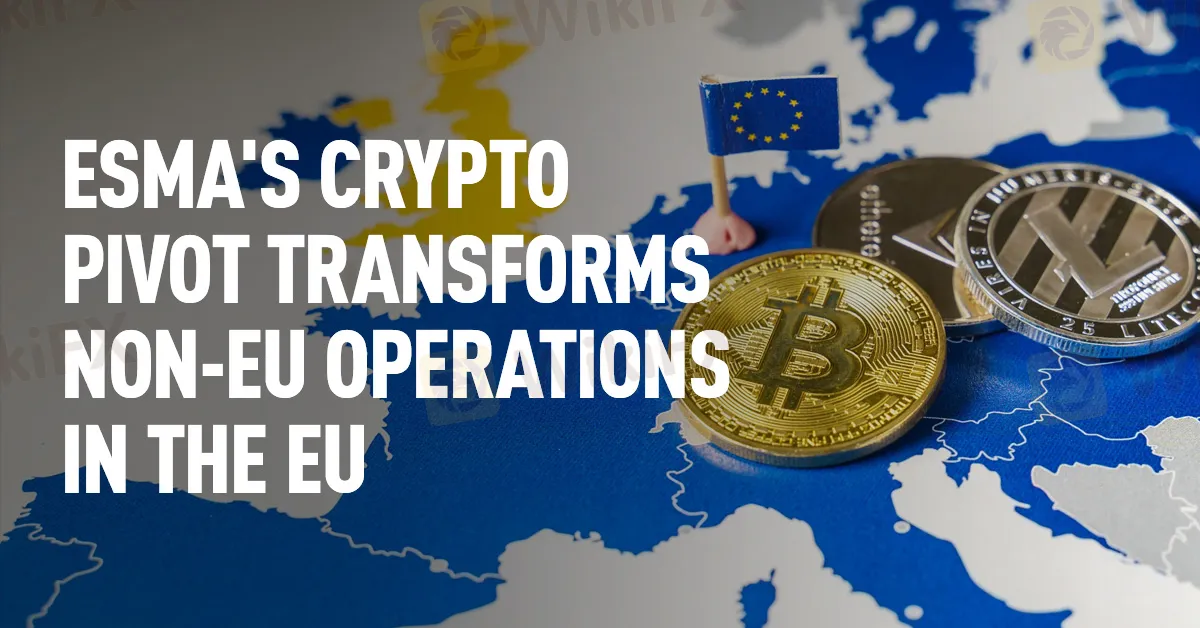简体中文
繁體中文
English
Pусский
日本語
ภาษาไทย
Tiếng Việt
Bahasa Indonesia
Español
हिन्दी
Filippiiniläinen
Français
Deutsch
Português
Türkçe
한국어
العربية
ESMA's Crypto Pivot Transforms Non-EU Operations in the EU
Abstract:ESMA proposes stringent limitations on non-EU crypto firms serving EU clients, emphasizing 'reverse solicitation' as an exception, potentially prompting foreign companies to establish a physical presence within the EU to comply with MiCA regulations.

The European Securities and Markets Authority (ESMA) has introduced a proposal with potential implications for the operations of non-EU crypto companies within the European Union.
The proposed guidelines aim to impose stringent limitations on how these firms serve EU customers directly, intending to curb unfair competition. This initiative follows the EU's enactment of the groundbreaking Markets in Crypto-Assets (MiCA) framework last year, representing a significant stride in regulating the inherently challenging cross-border nature of the online crypto sector.
ESMA's recent proposals, currently open for public consultation until the end of April, seek to provide clarity on the practical application of MiCA, particularly for crypto asset firms located outside the EU. According to ESMA's statement, non-EU firms can only offer crypto-asset services to EU clients if the client exclusively initiates the service, known as 'reverse solicitation,' a concept present in other EU financial laws.
ESMA emphasizes that this exemption should be narrowly interpreted and viewed as an exception rather than the norm. This stance may compel many foreign crypto firms to establish a physical presence within the EU, such as opening a branch or subsidiary, to adhere to the bloc's regulations.

In a commitment to safeguard EU-based investors and MiCA-compliant crypto-asset service providers, ESMA and EU national regulators are determined to hold non-EU entities to the same standards. The proposals strictly prohibit the direct solicitation of business within the EU by non-EU firms, including marketing campaigns.
Moreover, ESMA proposes guidelines to ascertain when a crypto asset should be classified as a “financial instrument,” similar to stocks or bonds. If categorized as such, these assets would fall under the EU's Markets in Financial Instruments Directive (MiFID) rules, introducing an additional layer of regulatory oversight.

Disclaimer:
The views in this article only represent the author's personal views, and do not constitute investment advice on this platform. This platform does not guarantee the accuracy, completeness and timeliness of the information in the article, and will not be liable for any loss caused by the use of or reliance on the information in the article.
Read more

Breaking News: OmegaPro Caught in a $650 Million Forex and Crypto Investment Scam
An indictment was leveled against two men in the District of Puerto Rico for their alleged involvement in the operation and promotion of OmegaPro, an international investment scheme that has led to financial losses worth over $650 million for investors. Check more about this story

BaFin Issues Warnings Against Unauthorised Crypto and Investment Platforms
BaFin has recently flagged multiple websites, including stcwelt.com and mega-platz.pro, for offering financial and cryptoasset services without proper authorisation. Stay informed and protect your investments.

CryptoCurrency Regulations in India 2025 – Key Things You Should Know
Cryptocurrency has become a major trend in today’s world. Crypto Experts believe it’s the future, which is why many people are investing heavily in it. But before jumping in, it’s important for crypto enthusiasts to understand the key rules about cryptocurrency in India.

Global Brokers Vs. Indian Rules: Why They Struggle in India
RBI issued a warning last year against 75 forex brokers. Those brokers are globally popular and regulated in other countries, but they are banned in India. Only few brokers even have physical offices located in India. So, why do global brokers face so many challenges in entering the Indian market?
WikiFX Broker
Latest News
Alchemy Markets Review 2025: Key Facts and Insights
Largest Market Makers
Temasek's portfolio scales new peak even as divestments hit over 2-decade high
Exposing Trade Capital Limited - Siphoning Millions, Restricting Withdrawals, Charging Extra Fees
GMI Edge: A Closer Look at Its Licenses
How Do I Place a Stop-loss Order?
5 Serious Warnings About Mirrox! You Can’t Afford to Ignore
FXPRIMUS: 5 Things They Don’t Want You to Know
Manual vs. Automated Forex Trading: Which One Should You Choose?
Mining firms lift FTSE 100 to record high after Trump confirms 50% copper tariff
Currency Calculator


